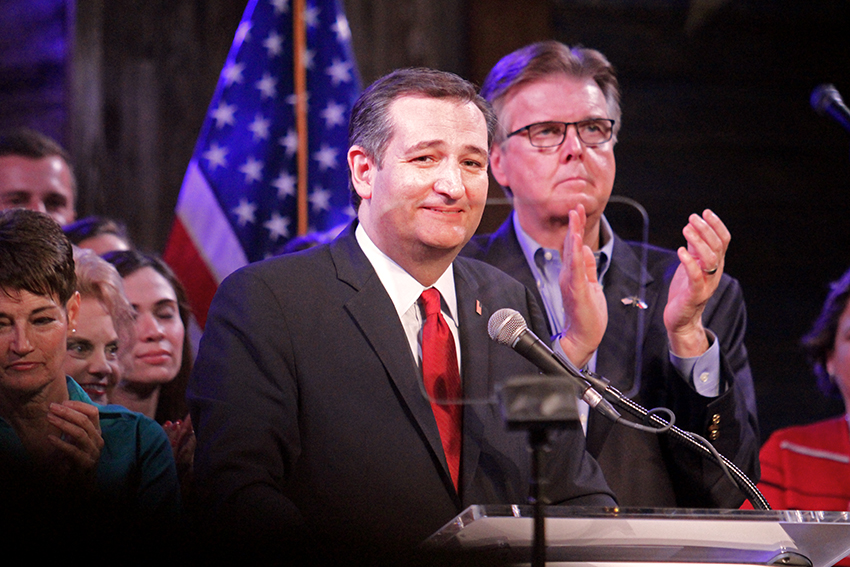In Shakespeare’s “Julius Caesar,” Mark Antony spends Caesar’s funeral calling for truth yet spreading animosity. In the 2016 presidential primary, candidates are using Antony-esque tactics to send messages that go beyond the literal meaning of their statements. Both Antony and the candidates call for just the facts, but all have their own agendas, and the agenda isn’t always truth.
In December, Ted Cruz called out the President because Obama “wouldn’t even identify the enemy.” Obama was using terms like “ISIL” and “jihadi terrorism” instead of the term Cruz thought was necessary, “radical Islamic terrorism.” Both terms are technically correct, but they come with very different connotations.
Here’s the thing about spin, it has an inherent duality. Spin can be used to imply a person should want something, or drive them away. Matthew McGlone, associate professor of communication studies said “spin both highlights and downplays, and both sides do it.”
Obama’s duty as president is to maintain the U.S.’s relationship with its allies, many of whom are Muslim countries. He uses “ISIL” and “jihadi terrorism” to show the separation between the Islamic faith and the minority who have interpreted jihad to mean waging a war on the West.
Ted Cruz is running in a race-to-the-right Republican primary. He needs to appeal to the Evangelical base, as well as show that Obama is weak in foreign policy. Cruz wants to use terminology that reinforces an “us vs. them” mentality and implies there is an attack on the Christian West.
Cruz’s insistence on calling it “radical Islamic terrorism” is not his only attempt to move people to vote for him based on fear. Psychology graduate student Kayla Jordan, applied the Linguistic Inquiry and Word Count (LIWC) analysis to speech patterns of 2016 presidential candidates.
“Cruz tends to be very risk focused.” said Jordan.
Despite Cruz’s heavy fear appeals and calls for truth, he may not believe his own story. While LIWC data scores Cruz highest on analytical thinking and speaking, he scores very low on honesty.
Jordan’s research on honesty can tell us “if he believes what he says, whether or not it is actually true.” Despite his calls for others to speak the truth, it seems that Cruz doesn’t believe in his own message. While both sides engage in heavy spin, Cruz’s lack of belief stands out.
Mark Antony was not the only orator in “Julius Caesar,” and Ted Cruz is not the only politician to tailor his words to send a particular message to his audience. There is rarely only one word to describe an event or an idea, so be skeptical when a politician suggests that their interpretation is the only truthful one.
The next time you stumble across a politician preaching their views, don’t be afraid to analyze their motivation and spin. They may not be saying what they seem to be saying.
MacLean is a journalism freshman from Austin. Follow her on Twitter @maclean_josie.





















